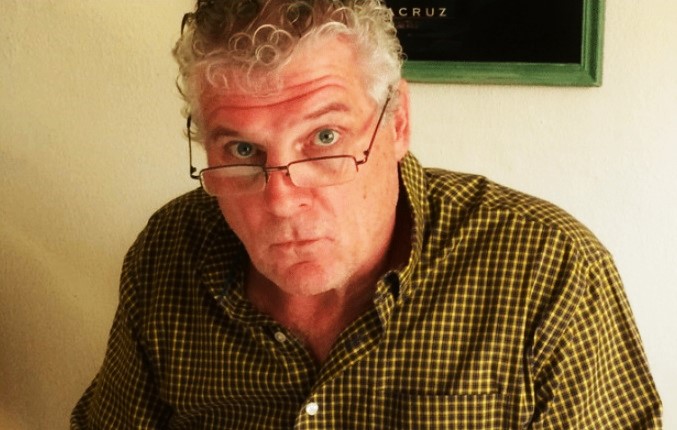In labeling Punching from the Shadows a memoir, Glen Sharp is likely to be promoting brief his autobiographical work. Greater than a memoir, Sharp presents in his e book an intensive and engrossing examination of his relationship with boxing. This he does through an in depth blow-by-blow account of the competition between a clearly rational thoughts–his personal–and boxing, a self-discipline which, as Norman Mailer as soon as put it, mocks the trouble of the understanding to method it.
As a educated economist, Sharp molded his thoughts right into a calculating one, and as such is definitely conscious of the potential issues of drawing conclusions from an inappropriately small pattern measurement. Nevertheless, the pointed insights that make up the majority of Punching from the Shadows not solely excuse this shortcoming, however truly make a powerful case for Sharp’s conclusions. If his closing document of 1 win in opposition to two defeats — accrued over a matter of months in 1982–appears paltry, Sharp’s recounting of his brief foray into prizefighting is vivid, enjoyable, and piercing, benefiting from his ring expertise, which, whereas restricted, formed the remainder of his life in a deep and simple means.
Maybe extra essential is the truth that Sharp comes throughout as totally real in his need to find what made him pursue boxing within the first place, and to know how a lot of his failure as a prizefighter was as a result of his personal decisions, how a lot to his limitations, and the way a lot to simply plain unhealthy luck. His clear-headed evaluation leaves no room for self-pity, however what makes it a worthwhile learn is that it’s delivered within the type of an apologia for boxing not solely as sport, however as an aesthetic pursuit as legitimate as any of the humanities. “Boxing just isn’t pure violence,” writes Sharp, “[but] the dramatic, at occasions even elegant, creative rendering of violence.”
If the unexamined life just isn’t price residing, absolutely such examination is simply as legitimate because the diploma to which it’s pursued with humility and honesty. Sharp is acutely conscious that nothing however the reality will do if he’s to reach at a satisfying rationalization for his relationship with prizefighting. “I hope… you discover me to be a fairly good storyteller, as a result of I certain wasn’t a lot of a fighter,” he writes within the preface, in a phrase that first strikes one as little greater than a self-deprecating jab, however which in hindsight is an ideal illustration of his e book: truthful, unambiguous, self-querying. Furthermore, it evidences Sharp’s perception that we are able to solely know who we’re by truthfully telling our personal story: not one which pleases or comforts us, however one which satisfies our longing for understanding.

Sharp’s relationship with prizefighting started after a hurried beginner profession that noticed him flip professional to keep away from having to get a “actual job.” To his nice shock, issues went fairly properly at first: “I didn’t deserve what was occurring. I had not taken boxing as critically as I ought to have as an beginner, and only a month or so after I had determined to use myself, I used to be going to be educated by a former world champion and have a supervisor to function the enterprise finish of my profession.”
When the items fall into place so simply, success appears predetermined, virtually unavoidable. Nevertheless, as Sharp would quickly uncover, there aren’t any shortcuts to cowl the hole separating a novice from a world-class expertise. On this regard his apprenticeship started in earnest when he began sparring with Yaqui Lopez, the most effective mild heavyweights to by no means win a world title. Of his first sparring session, Sharp writes: “I had by no means seen so many proper palms in all my life. If I threw a jab, Yaqui would throw a proper hand over it. If I attempted to hook, he threw a proper hand inside it. If I threw a proper hand myself, he would block it or slip it and counter with a proper hand of his personal. I ate so many proper palms that first day I didn’t want dinner once I obtained house at evening.”
The expertise confirmed Sharp his precise spot within the pecking order, but when something, assembly Yaqui cemented his need to combat. Attending to know Yaqui exterior the ring additionally confirmed him exactly what it takes to change into a good boxer, by no means thoughts a world title challenger: “Yaqui appreciated boxing for the act itself. I had all the time beloved boxing regardless of how a lot work was required, however Yaqui beloved boxing due to the work.”
That is what led Sharp to understand that to change into actually good at one thing calls for complete dedication: “Attraction with out dedication just isn’t love; it’s only need. I had a need to field, however I didn’t love boxing sufficient to offer myself to it.” But when Sharp’s dedication to boxing won’t have been as complete as Yaqui’s, that doesn’t imply he wasn’t studying as a lot as he might. Throughout his brief profession, Sharp flirted with a minimum of three preventing kinds, every with its personal idiosyncrasies, benefits, and downsides, struggling to adapt them to his personal propensities and bodily attributes.
His first coach, Corridor of Fame middleweight champion Carl “Bobo” Olson, compelled him to undertake the Benton (or “Philly”) shell. Sharp later realized the Burnett shell was a greater match, even when he nonetheless reverted sometimes to the chaotic offensive fashion that obtained him by his beginner profession, a method which relied closely on his highly effective left hook.

“Not pondering of oneself as being heroic is a protected approach to stay, but it surely doesn’t essentially make for the most effective tales we are able to inform about ourselves,” Sharp writes, however much more important is his conclusion that heroism is to not be equated with carelessness. Upon dealing with the truth of standard beatings by Lopez, Sharp started a quest to seek out his finest self within the ring, one thing which might require him to concentrate on protection a minimum of as a lot as he did on offense, even when it meant negating part of him that he as soon as considered important. The shift was profitable to an extent, with Sharp even scoring a knockdown in the direction of the top of his sparring relationship with Yaqui. This progress in sparring represented a big step ahead in Sharp’s mission to treat himself with conviction as a prizefighter, regardless of the very fact his meager earnings stated in any other case, regardless of the rational a part of his thoughts disagreeing together with his chosen occupation, and regardless of his father’s quiet disapproval of his commerce.
“When Terry Malloy stated ‘I coulda been a contender, I coulda been someone,’ he’s speaking about being somebody to himself,” Sharp observes, recalling the well-known character from On The Waterfront, and thus defining his boxing tour as a journey of self-realisation. Sadly for him, Olson’s cussed suggestion of the Benton shell, Sharp’s sense of guilt and confusion at not getting a lot success out of it, and his try to combine in different components into his preventing fashion all conspired in opposition to him in his third skilled combat, the one he was most assured of profitable:

“…with all of the adrenaline in my blood system, the scenario was far more tense, and my mind locked up I used to be not capable of assume as clearly as I might whereas not underneath strain. I might sense the precarious place I had positioned my head in. Having programmed myself to combat defensively however having that authority questioned by my pure need for a extra bodily combat, I used to be caught in no man’s land, with no means to know why.”
In lower than three rounds, Sharp skilled the whole effacement of any validation he had struggled so onerous to earn within the fitness center. The blow was so devastating that it moved him to retire from the game, even when Lopez tried to discuss him out of it:
“[Yaqui] pleaded with me to not cease. He instructed me I used to be going to make some cash. He turned away from me as I stated to him that my lack of aggressiveness would all the time be a hindrance to my boxing. He didn’t wish to take a look at me as I lied to him, he didn’t wish to witness me mendacity to myself. He didn’t wish to see me as not solely too cowardly to maintain preventing, however too cowardly to even admit why I used to be operating away. That harm worse than any time he ever hit me.”

Sharp went on to get a “actual job” and stay a comparatively comfy life, and when the siren name of boxing tempted him once more, life discovered a means of impeding a return to the ring. However the insights Sharp gained in regards to the sport and about himself would nurture his mind for ever after. Ultimately he discovered literature, and fell in love with it simply as he had with boxing; he grew to become a author, and took the ultimate step in his journey of self-discovery by documenting his preventing profession and what he had discovered from it. So no, Sharp didn’t change into a world-class fighter; in truth, at no level in his life did he make a residing as a prizefighter. Luckily, he did change into an excellent storyteller; Punching from the Shadows is proof of that. –Rafael Garcia





















